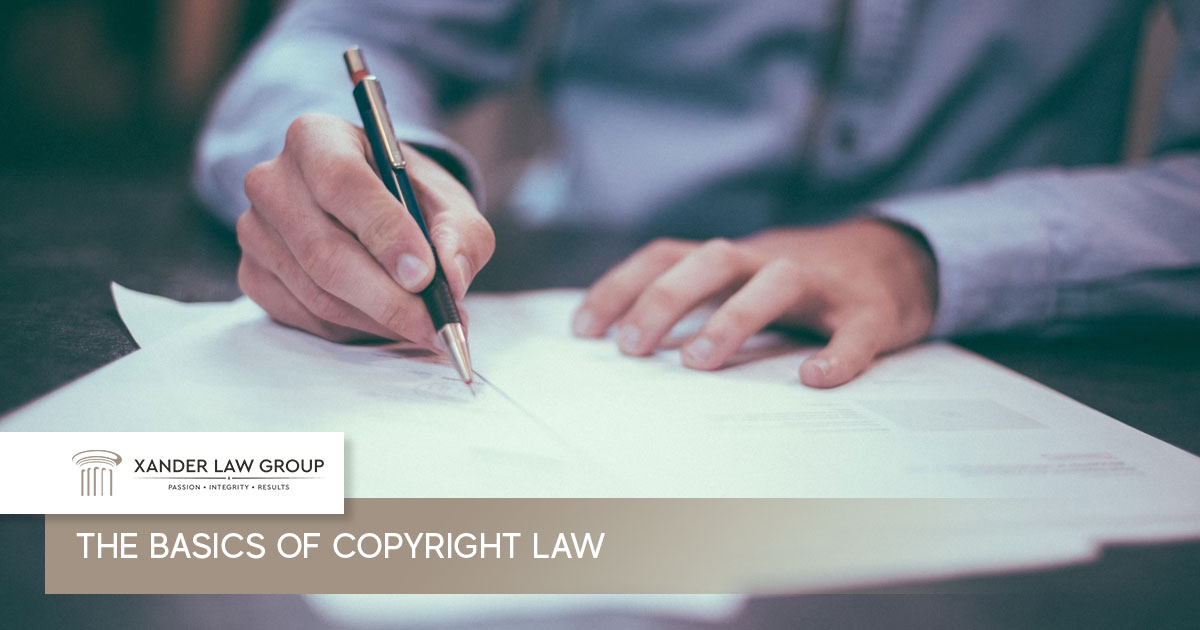The Basics of Copyright Law

Understanding copyright law can be confusing. While you may know that copyright gives the author exclusive rights to copy and distribute a work, the specifics can be complicated.
What Is Copyright Law?
In most basic terms, a copyright will protect the author against unlawful copying of their work. Copyrights do not protect the ideas of the work or against independent development. Contrary to widespread belief, a work’s protection under copyright is automatic upon completion or fixation. While you can register your work with the U.S. Copyright Office or mark it with a notice, it is not necessary.
What Are The Copyright Requirements?
The three basic requirements are:
- Work Of Authorship: According to Law Insider, a work of authorship is, “…an expression fixed in a tangible medium of expression regardless of the need for a machine to make the expression manifest…” In simpler words, is it real? Examples include:
- Literature And Text: Articles, biographies, emails, letters, news stories, novels, outlines, poems, short stories, etc.
- Graphics, Pictures, And Sculptures: Designs, drawings, paintings, photographs, sketches, etc.
- Choreographed, Dramatic, And Musical: Plays, musicals, songs, TV shows, etc.
- Sound Recordings: Books on tape, public speeches, song performances, etc.
- Computer And Digital: Digitized works, programs, websites, etc.
- Originality: For a work to fall under copyright protection, it must uphold proof of originality. To prove this, the work must show some sort of creativity and be an independent creation of the author.
- Fixation: Works must be fixed in expression to fall under copyright protection. This does not mean the work must be in its final draft. Drafts and beta versions are all considered fixed. Unscripted and unrecorded ideas do not fall under protection.
Your Rights As A Copyright Holder
The Copyright Act of 1976 outlines exactly what and what is not covered under copyright protection. You must understand these aspects to best protect your work.
What Does It Protect?
Having a copyright means that the author will have exclusive rights to:
- Craft derivative works.
- Display or perform the work.
- Distribute copies.
- Reproduce the work.
What Does It Not Protect?
Having a copyright means that you are not protected from:
- Concepts, procedures, processes, or systems of operation.
- Data or facts. Their arrangement can be protected.
- Ideas.
- Independent development.
- Standard treatments, or scenes a faire.
- Words and phrases.
Copyright Infringement
Any violation by a third party to a copyright holder’s rights is considered an infringement. Common infringements include displaying, distributing, performing, or reproducing a work without the permission of the owner.
What Is Fair Use?
One of the strongest defenses against upholding a copyright is fair use. Courts will consider the purpose and character use, nature of the work, amount and sustainability of the use of the work in question, and effect of the value to the work. Examples of fair use include:
- Parody.
- Thumbnails of original works.
- Public controversy and commentary.
- Copy for time-shifting.
- Data mining.
- Lawful digital transfer to mobile devices.
Violation Repercussions
If the courts find that a copyright was violated, the guilty party can face serious repercussions. Not only will the infringer have to pay the holder back the full number of damages and profits they have caused, but they are also responsible for paying back attorney and court costs. The judge will assign a price ranging from $200 to $150,000 for each violation. Other repercussions include injunctions to stop the infringement, impounding the illegal copies and even the possibility of jail time.
Copyright Law in South Florida
Since 2011, Xander Law Group has been representing South Florida residents with copyright law matters. We pride ourselves on combining our unique perspective and professionalism to make you the priority.
If you have any questions about copyright law or suspect a violation of your works, call us at (305)-767-2001 or contact Xander Law to schedule a free consultation today!








